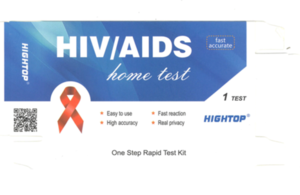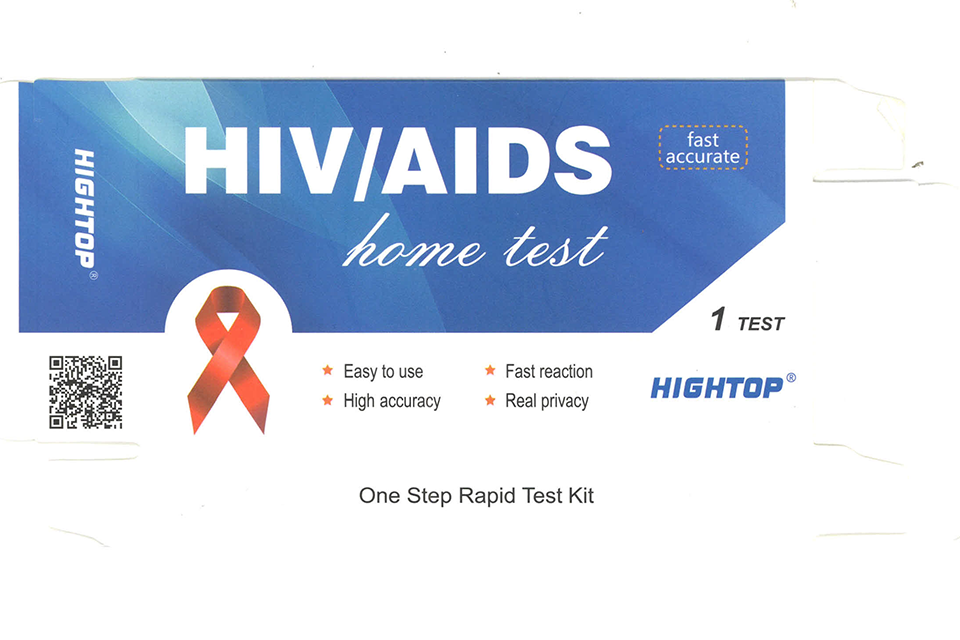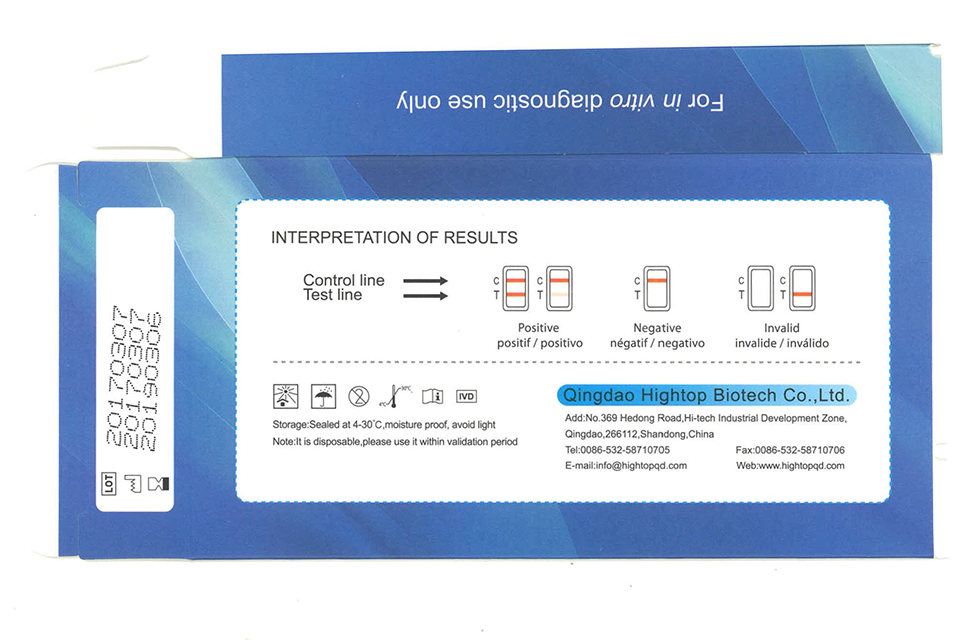MHRA seizes more than 100 unreliable HIV home-testing kits
MHRA are investigating a number of Hightop HIV/AIDS Home Test Kits that may be unreliable and may provide false results.

The Medicines and Healthcare products Regulatory Agency (MHRA) is warning people to not use or buy Hightop HIV/AIDS Home Test Kit after seizing 114 potentially unreliable products from 2 UK based suppliers.
If you believe you have used a Hightop HIV/AIDS Home Test Kit you should seek a further HIV test at your local sexual health clinic or through your GP, because the self-test kits may be unreliable and provide false results.
All UK based stock of Hightop HIV/AIDS Home Test Kit have been seized by MHRA and all sales of the product into the UK market have been stopped by the manufacturer.
The HIV kits, manufactured by Qingdao Hightop Biotech Co Ltd, do not have a valid CE mark which means the product has not met a number of regulatory requirements concerning test performance, labelling and instructions for use for use. MHRA is investigating the issue with experts at Public Health England.
Always make sure the HIV test kit has a CE mark and is clearly intended for self-testing. Only approved HIV self-testing kits that have met the appropriate regulatory requirements concerning test performance, labelling and directions for use carry a CE mark.
Whether buying from the high street or online, only buy a self-test kit from a reputable source, such as an online pharmacy registered with MHRA. In the UK online pharmacies must be registered with MHRA and display the European Common Logo on every page of their website. Read our #FakeMeds top tips for more information on buying medicines and medical devices, including HIV home-testing kits, safely online.
You can find out more about where to buy HIV test kits at HIV Aware.
Speak to your doctor if you have any concerns about your health or test results. Suspected faulty test kits can be reported via the Yellow Card Scheme.
MHRA’s Director of Devices, John Wilkinson, said:
People who buy a self-test kit online or from the high street should know what they are buying is safe and reliable. Make sure the kit has a CE mark and clearly states that it is intended for home self-testing. Don’t use a test kit if it’s damaged or the seal is broken.
If you are concerned you may have used an unreliable test kit, speak to your GP, sexual health clinic, pharmacist or other healthcare professional.
We continue to encourage people to report any issues involving medical devices to MHRA via our Yellow Card Scheme.
Cary James, Head of Health Promotion at Terrence Higgins Trust (THT), said:
Home self-test kits for HIV and STIs have many benefits, including letting people test in their own space, in their own time, on their terms. However we are extremely concerned to see unregulated produce on the market and urge anyone considering a test to only use those with a CE mark. Anyone taking a test without a CE mark risks their own health and that of others.
Dr Kirsty Foster, Consultant in STIs and Blood Borne Viruses at PHE, said:
HIV tests are free and testing through a sexual health clinic is strictly confidential. We would encourage anyone who thinks they may have been at risk of HIV to get tested as soon as possible, as early diagnosis and treatment are highly effective in helping people with HIV remain in good health long term and reduce the risk of passing the virus on.
John Wilkinson discusses Hightop HIV/AIDS Home Test Kits


Background
- The Medicines and Healthcare products Regulatory Agency (MHRA) is responsible for regulating all medicines and medical devices in the UK.
-
All our work is underpinned by robust and fact-based judgements to ensure that the benefits justify any risks. MHRA is a centre of the Medicines and Healthcare products Regulatory Agency which also includes The National Institute for Biological Standards and Control (NIBSC) and Clinical Practice Research Datalink (CPRD). The Medicines and Healthcare products Regulatory Agency is an executive agency of the Department of Health.
-
HIV self-testing is when an individual performs an HIV test on themselves, in private, and gets an immediate result. This is not to be confused with Home Sampling which is where individuals order a self-sampling kit, take their own sample in the privacy of their own home and return it to a laboratory for testing and results management.
-
Since April 2014, it has been lawful to sell, and advertise for sale, CE-marked HIV self-testing kits in England, Scotland and Wales. To receive approval for sale in the UK, HIV self-test kits must meet a number of requirements concerning test performance, labelling and directions for use.
-
Terrence Higgins Trust (THT) is the UK’s largest HIV and sexual health charity
- THT Direct, 0808 802 1221, gives support, advice and information. Their advisers can provide emotional support if people are worried about their sexual health or have concerns about living with HIV. They can help people access services local to them across the UK, whether provided by THT or by someone else.
Media enquiries
News centre
MHRA
10 South Colonnade
London
E14 4PU
Email newscentre@mhra.gov.uk
During office hours: 020 3080 7651 (08:30 - 17:00)
Out of office hours: 07770 446 189 (17:00 - 08:30)
Office hours are Monday to Friday, 8:30am to 5pm. For real-time updates including the latest press releases and news statements, see our Twitter channel at https://www.twitter.com/mhragovuk.
Last updated 22 August 2017 + show all updates
-
New YouTube link
-
First published.